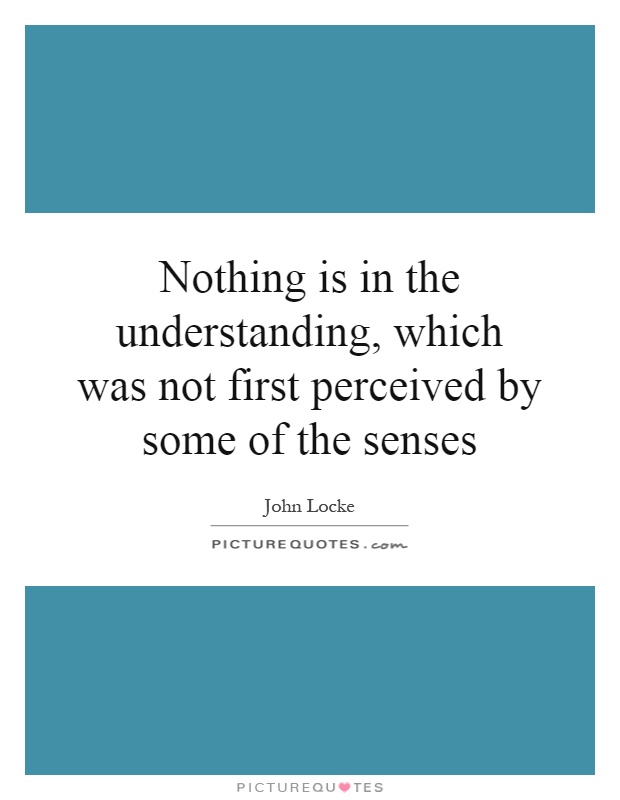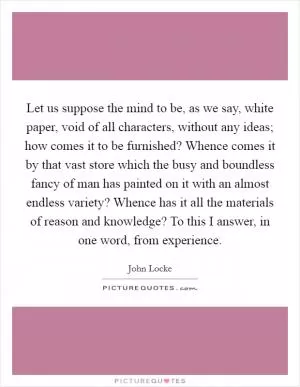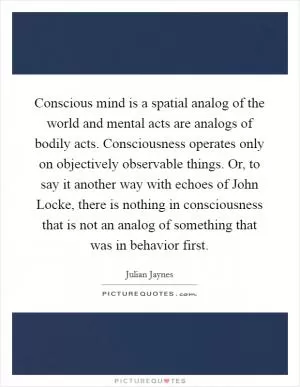Nothing is in the understanding, which was not first perceived by some of the senses

Nothing is in the understanding, which was not first perceived by some of the senses
John Locke, a prominent philosopher of the 17th century, is often credited with the statement, "Nothing is in the understanding, which was not first perceived by some of the senses." This assertion is a fundamental principle of Locke's empiricist philosophy, which posits that all knowledge comes from sensory experience. In other words, Locke believed that the mind is a blank slate at birth, and that all ideas and concepts are derived from our interactions with the external world through our senses.Locke's theory of knowledge is in direct contrast to the rationalist philosophy of thinkers like Descartes, who believed that certain truths could be known through reason alone, independent of sensory experience. For Locke, however, the mind is passive and receptive, and all knowledge is acquired through the senses. This idea is encapsulated in his famous analogy of the mind as a "tabula rasa," or blank slate, upon which sensory experiences inscribe themselves.
According to Locke, our senses provide us with the raw material of experience, which the mind then processes and organizes into ideas. For example, when we see a red apple, our sense of sight perceives the color red, the shape of the apple, and other sensory qualities. These perceptions are then combined and abstracted by the mind to form the idea of an apple. In this way, all of our ideas, concepts, and beliefs are ultimately rooted in sensory experience.
Locke's emphasis on the importance of sensory experience in shaping our understanding of the world has had a profound influence on modern philosophy and psychology. His ideas laid the groundwork for the development of empiricism as a major philosophical tradition, which continues to shape our understanding of knowledge, perception, and cognition. Locke's assertion that "Nothing is in the understanding, which was not first perceived by some of the senses" remains a central tenet of empiricist thought, highlighting the crucial role that sensory experience plays in shaping our understanding of the world.












 Friendship Quotes
Friendship Quotes Love Quotes
Love Quotes Life Quotes
Life Quotes Funny Quotes
Funny Quotes Motivational Quotes
Motivational Quotes Inspirational Quotes
Inspirational Quotes